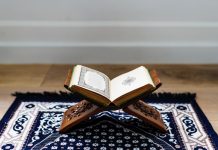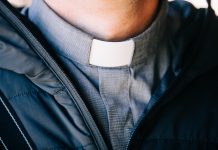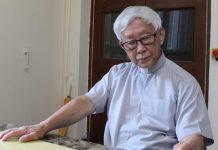01/29/2022 Nigeria (International Christian Concern) – Technically a secular nation, Nigeria’s federal constitution contains protections for freedom of religion and belief, including the right of citizens to change their religion and the right to “manifest and propagate [one’s] religious belief in worship, teaching, practice and observance.”
Unfortunately, many Nigerians today are not given access to these freedoms.
Twelve northern states operate a parallel court system which hands down judgements based on Sharia law instead of the country’s penal code. The courts, though originally designed to handle administrative matters for Muslims, evolved soon after the advent of democracy in Nigeria to also handle criminal matters.
The shift in these courts from administrative to criminal is an important one and gave these courts jurisdiction over matters like petty theft which, under Sharia law, calls for the amputation of the perpetrator’s hand. The shift also gave courts jurisdiction over crimes specific to Sharia, such as blaspheming the prophet Mohammed. Kano Upper Sharia Court sentenced two young men for blasphemy in 2020—one to death and one to ten years in prison.
That government courts can hand down convictions for blasphemy—a so-called crime long criticized by human rights activists because it criminalizes minority religious beliefs—is a direct violation of Nigerians’ right to religious freedom.
In Kaduna State, Governor Nasir El-Rufai recently reintroduced the Religious Preaching Edict of 1984. The renewed regulations criminalize preaching without authorization and aims to control not only who can preach but also the content of their sermons.
The legislation empowers an Interfaith Preaching Regulatory Council to implement the regulations. “Anyone who doesn’t follow this procedure and begins to preach without authorization, will be liable to pay a fine and may even be imprisoned,” El-Rufai said in an interview.
Justifying the need for these new regulations, El-Rufai claimed that “most times, it is preachers that are the worst culprits” and insisted that “before someone can start preaching, he should be very knowledgeable, [and have] understanding and experience to preach in a manner that will bring about peaceful coexistence” as judged by the Council. “The council will have to certify whoever wants to preach in Kaduna state as having the requisite knowledge, temperament, experience and foresight.”
El-Rufai passed the new regulations on religion without the approval of the state legislature, which in previous years had soundly rejected the proposed clampdown on preaching.
Even as state governments continue to disregard the religious rights of their citizens, the United States recently Nigeria off the Countries of Particular Concern (CPC) list in November of 2021, essentially giving its religious freedom practices a stamp of approval. Human rights groups reacted with strong condemnation and the U.S. Commission on International Religious Freedom, a government body, called the move “appalling.”
Several congressional offices pushed back against the delisting as well, joining group letters demanding an explanation for the move and asking that State Department reverse its decision to take Nigeria off the CPC list. ICC, which has long engaged with Congress on the issue of persecution in Nigeria, helped push these letters behind the scenes and met with dozens of congressional offices in the weeks after the delisting.















